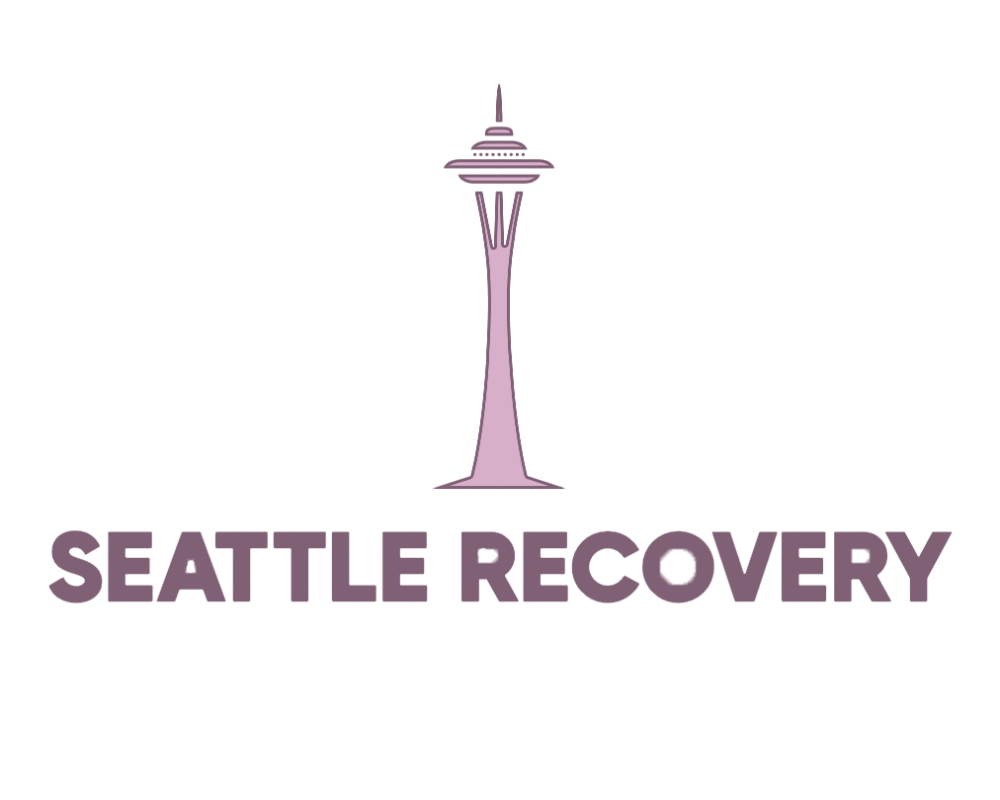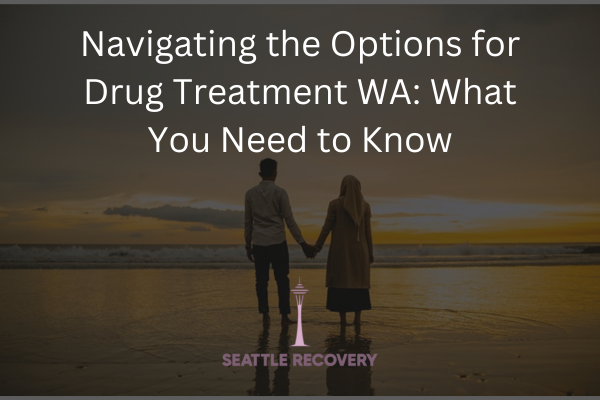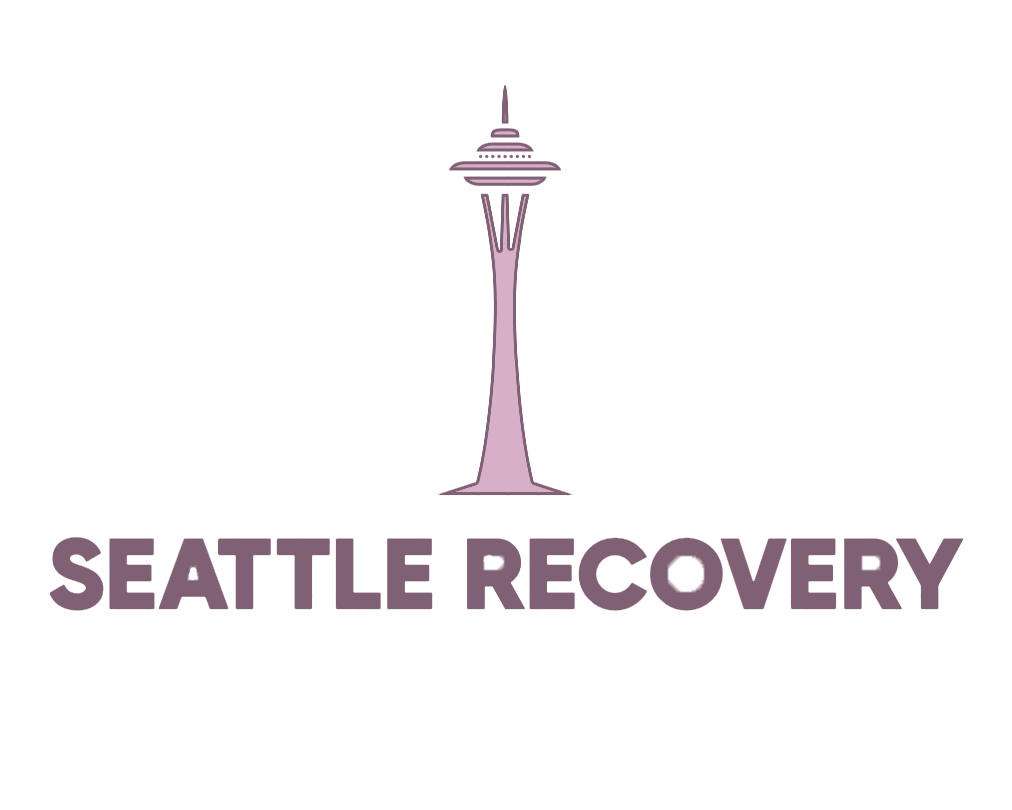When it comes to overcoming addiction and mental health challenges, finding the right treatment is crucial for long-term recovery. In Washington State, there are numerous options available to individuals struggling with substance abuse, mental illness, and process addictions. Understanding these options is the first step toward making an informed decision about your recovery journey.
At Seattle Recovery, we specialize in providing compassionate, evidence-based care for individuals dealing with addiction, mental health issues, and behavioral disorders. In this blog post, we will explore the different types of Drug Treatment WA offers, helping you navigate the landscape of available resources and choose the best path for your recovery.
Understanding Addiction and Mental Health Challenges
Addiction is a complex disease that affects the brain and behavior, leading to compulsive drug use despite harmful consequences. It is often intertwined with mental health disorders, such as depression, anxiety, trauma, and post-traumatic stress disorder (PTSD). Additionally, process addictions—such as gambling, shopping, or internet use—can be just as damaging as substance use disorders.
In Washington State, as in many other places, the demand for effective Drug Treatment WA programs is significant. The state has a broad spectrum of treatment options, from outpatient counseling to inpatient rehabilitation, catering to the unique needs of individuals. Whether you are seeking help for drug addiction, mental illness, or a combination of both, there is a wide range of treatment resources available to you.
The Types of Drug Treatment Programs in WA
Navigating the different treatment options can be overwhelming. However, understanding the various levels of care will help you make an informed choice. In Washington, Drug Treatment WA programs generally fall into the following categories:
-
Detoxification (Detox)
For individuals who are physically dependent on drugs or alcohol, detoxification is often the first step in the treatment process. Detox helps remove harmful substances from the body and manages withdrawal symptoms in a safe, controlled environment. It is important to note that detox is not a treatment for addiction but rather a necessary first step before entering a comprehensive treatment program.
Detox can be done on an inpatient or outpatient basis, depending on the severity of the addiction and the withdrawal symptoms. Inpatient detox provides 24-hour supervision and medical care, which can be particularly helpful for individuals with severe addictions.
At Seattle Recovery, we recognize that detoxification can be challenging, which is why we provide medical supervision and emotional support during this critical time. We offer a compassionate environment where clients can begin their recovery with confidence.
-
Inpatient Rehabilitation (Residential Treatment)
Inpatient rehabilitation provides a structured, immersive treatment environment where individuals can focus entirely on their recovery. This level of care is suitable for those with severe addictions or co-occurring mental health disorders. Additionally, it serves those who need more intensive support. In a residential treatment setting, clients live at the treatment facility for a specified period. Typically, this ranges from 30 days to several months, depending on their needs. During this time, clients receive around-the-clock medical and emotional support. Furthermore, they participate in therapy sessions and engage in recovery-based activities that promote healing.
At Seattle Recovery, our inpatient program is designed to address the underlying causes of addiction. These causes include trauma, mental illness, and unresolved emotional issues. We provide individual therapy, group therapy, and holistic treatment approaches. Consequently, these help clients rebuild their lives. Additionally, they help develop coping strategies for long-term success.
-
Outpatient Treatment
Outpatient treatment offers more flexibility than inpatient care. It allows individuals to attend therapy and counseling sessions. Moreover, they can continue to live at home or in a supportive living environment. This option is ideal for individuals who have completed inpatient treatment or for those whose addiction is less severe.
There are several levels of outpatient treatment, ranging from intensive outpatient programs (IOP) to regular outpatient counseling. IOPs typically involve more frequent and structured sessions (3-5 times per week). In contrast, regular outpatient therapy may involve fewer sessions (once a week or bi-weekly).
Outpatient care at Seattle Recovery is designed to help individuals build a strong foundation for recovery. Furthermore, this occurs while maintaining their day-to-day responsibilities.
We offer a range of outpatient services, including individual therapy, group therapy, family counseling, and relapse prevention programs.
-
Medication-Assisted Treatment (MAT)
Medication-Assisted Treatment (MAT) is a highly effective approach for individuals with opioid, alcohol, or other substance use disorders. MAT combines behavioral therapy with the use of FDA-approved medications to reduce cravings, manage withdrawal symptoms, and support recovery. Common medications used in MAT include methadone, buprenorphine, naltrexone, and disulfiram.
MAT is often used in conjunction with other forms of therapy to provide a comprehensive, holistic approach to addiction treatment. For individuals struggling with opioid addiction, MAT can be life-saving, reducing the risk of overdose and promoting long-term recovery.
At Seattle Recovery, we offer MAT as part of our individualized treatment plans. Our medical professionals work closely with clients to determine the best medication options based on their specific needs and treatment goals.
-
Therapy and Counseling
Therapy is at the heart of addiction treatment, and it is essential for individuals to address the underlying emotional, psychological, and behavioral issues that contribute to their addiction. Several different types of therapy are used in Drug Treatment WA programs:
- Cognitive Behavioral Therapy (CBT): CBT is a goal-oriented therapy that focuses on identifying and changing negative thought patterns and behaviors that contribute to addiction. It helps individuals develop healthier coping mechanisms and problem-solving skills.
- Dialectical Behavior Therapy (DBT): DBT is a form of therapy that helps individuals with emotional regulation, distress tolerance, and interpersonal skills. It is particularly effective for those with co-occurring mental health conditions such as borderline personality disorder or PTSD.
- Motivational Interviewing (MI): MI is a client-centered approach that helps individuals explore their ambivalence about change and strengthens their motivation to engage in treatment and recovery.
- Family Therapy: Family therapy involves the loved ones of the individual in the treatment process. This helps improve communication, address family dynamics that may contribute to the addiction, and create a strong support network for recovery.
At Seattle Recovery, we believe in the power of therapy to heal the mind and spirit. Our experienced therapists utilize a variety of evidence-based approaches to support each client in their recovery journey.
-
Aftercare and Relapse Prevention
Recovery does not end after the completion of a formal treatment program. Aftercare and relapse prevention are vital components of long-term success in recovery. Aftercare services include continued therapy, support groups, and resources to help individuals stay connected to their recovery community and maintain their progress.
Relapse is a common part of the recovery process, but with the right tools and support, it can be managed. Our relapse prevention programs at Seattle Recovery are designed to help individuals identify triggers, develop coping skills, and build a strong support network to reduce the risk of relapse.
-
Dual Diagnosis Treatment
Many individuals seeking Drug Treatment WA have a dual diagnosis, meaning they have both an addiction and a mental health disorder. Addressing both issues simultaneously is crucial for effective treatment. Dual diagnosis treatment integrates addiction care with mental health therapy, ensuring that both the substance use disorder and mental health disorder are treated in a comprehensive, integrated way.
At Seattle Recovery, our dual diagnosis program is designed to provide holistic care for individuals struggling with both addiction and mental health conditions. By treating the whole person—mind, body, and spirit—we help clients achieve lasting recovery.

Choosing the Right Drug Treatment Program in WA
With so many treatment options available, how do you choose the right one? The best approach is to consider the severity of the addiction, the presence of any co-occurring mental health conditions, and your individual needs and preferences. Here are some key factors to consider when selecting a Drug Treatment WA program:
- Assessment and Personalized Care
Look for a program that offers personalized treatment plans. A thorough assessment by a medical or clinical professional is the first step in determining the most appropriate level of care and treatment approach for your unique needs.
- Credentials and Accreditation
Ensure that the treatment center is accredited by recognized organizations, such as the Commission on Accreditation of Rehabilitation Facilities (CARF) or The Joint Commission. Accreditation ensures that the facility adheres to high standards of care and safety.
- Comprehensive Services
The best treatment programs offer a wide range of services, including detox, therapy, medical care, and aftercare. Look for a facility that can address all aspects of your recovery, including physical health, emotional well-being, and social support.
- Supportive Environment
A supportive, compassionate environment is essential for recovery. Look for a treatment center that offers a safe, non-judgmental space where you can focus on healing without distractions.
- Continuum of Care
Recovery is an ongoing process. Choose a program that offers a continuum of care. This means they provide support during and after treatment. Consequently, this helps you maintain long-term recovery.
Reach out to Us Today
Overcoming addiction and mental health challenges is a difficult but achievable goal. By understanding the options available for Drug Treatment WA, you can make an informed decision. This helps you choose which treatment path is right for you. Whether you are seeking inpatient care, outpatient therapy, medication-assisted treatment, or support for dual diagnosis, resources are available. These resources help you every step of the way.
At Seattle Recovery, we are dedicated to helping individuals on their journey to recovery. We offer a wide range of evidence-based treatment options tailored to each individual’s needs. If you or someone you love is struggling with addiction or mental health issues, reach out to us today. Learn more about how we can help.
. Give us a call today at (206) 231-0252 to get your life back today.







